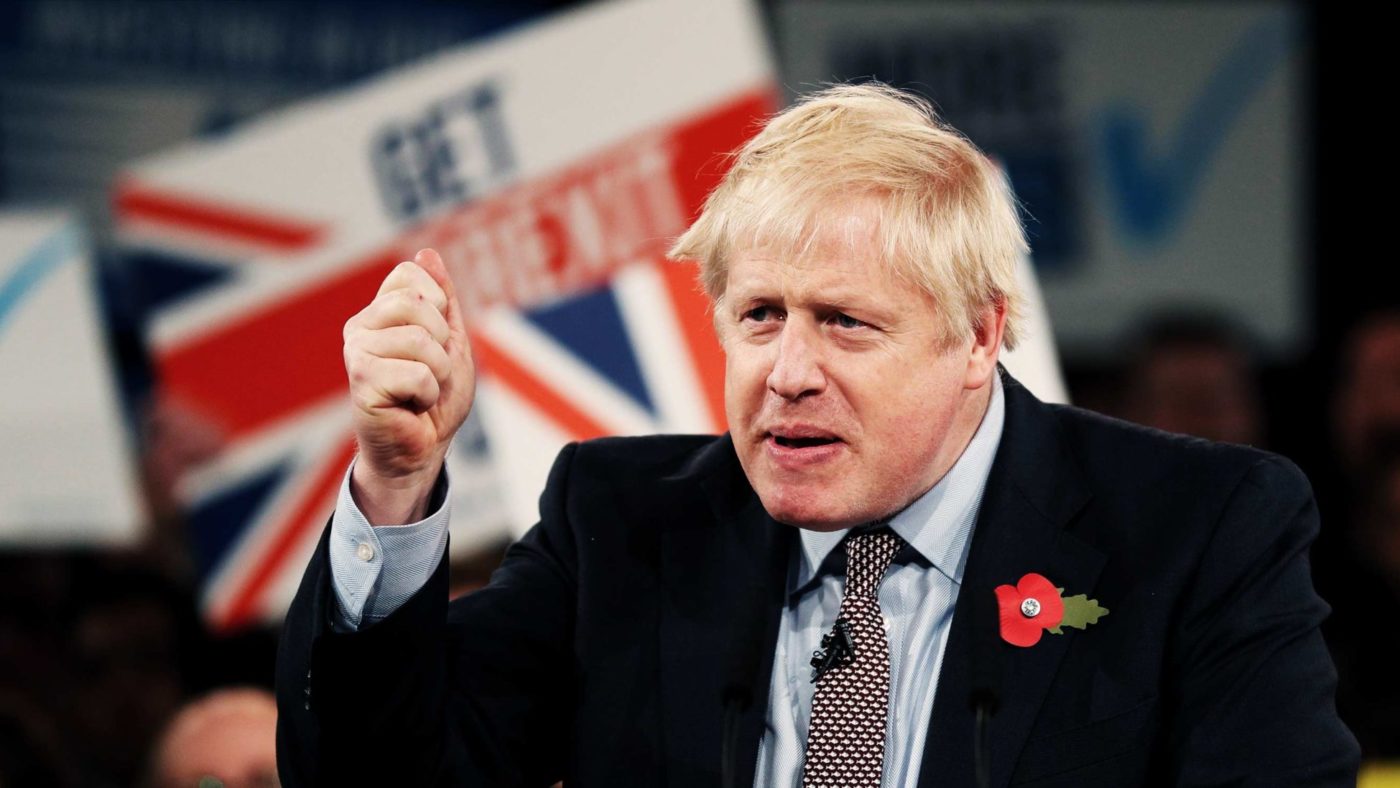Politicians, like generals, are prone to fighting the last war. For all the speculation in certain quarters about a big Conservative win next month, many of the politicians and activists I have spoken to are talking about a majority on the scale of that won by David Cameron, if that.
Until recently it would be very unusual for activists to enter an election with a big poll lead and be quite so deflated. But Tories bear the scars of 2017’s disastrous campaign on their back, and will likely do so for years to come. And this is having, and will have, consequences for how the Party campaigns.
Post-mortems of Theresa May’s catastrophic collapse at the last general election can point to several factors, but one the Party seems to have alighted on is that she, or her advisers, tried to use her strong polling and anticipated margin of victory to serve up some hard medicine to the electorate.
There seems no risk of that happening this time: Boris Johnson’s campaign will almost certainly try to avoid ‘poison pill policies of any sort. Instead the Prime Minister has spent the last few months outlining a slew of spending promises, from extra spending on the police and the NHS to tax cuts, increases in National Insurance thresholds, and more.
In tactical terms, going into an election with a big bag of retail offers makes a great deal of sense. But it risks creating strategic challenges for the Conservatives which may bite them later on, be that years down the line or at some later point in what will surely feel like a very long campaign. This is because Johnson’s spendthrift approach inevitably shifts the Overton Window leftwards on public spending.
Now to some extent, this was inevitable. As David Cameron acknowledged in his recent autobiography, there is a limited political window in which a government can command strong public support for spending restraint and a decade on from the 2008 crash that window has probably passed.
Yet stories about the Chancellor ‘loosening his fiscal rules’ and ‘turning on the taps’ are a double-edged sword. Yes, they send a signal to voters that the Conservatives are going to spend more money on public priorities. But they also further erode the perceived importance of spending restraint, and thus risk not only legitimising Labour’s approach but sucking the Tories into a giveaway arms race they cannot win.
Naturally the Conservatives aren’t about to surrender their attack lines on Labour profligacy. But as Stephen Bush points out in the New Statesman, one of the tools Javid is currently using to distinguish himself from John McDonnell is a less generous approach to infrastructure spending. This may well be fiscally sensible, but it is at once slightly arcane and, one suspects, not likely to go down all that well if explained. “We’ll both run day-to-day surpluses but that lot will spend recklessly on roads and hospitals” doesn’t sound like a winning line.
Of course, the current Labour leadership are a historically special case, and the Shadow Chancellor may well prop up the Tories’ charges with the sheer scale of his ambitions – the director of the Institute for Fiscal Studies, Paul Johnson, has described the scale of his borrowing proposals as “wholly unprecedented by orders of magnitude”.
It also won’t help that one of his advisers has been secretly recorded calling for a hike in fuel duty, a politically toxic tax, or that Jeremy Corbyn is combining all these spending plans with a melange of Seventies-style policies, such as reviving old-fashioned trades union powers.
But if they are not to end up outmanoeuvred by a cannier opposition down the line, Johnson and Javid need to find themselves a modern equivalent of council house sales: a generous but carefully targeted retail offer which not only won votes in the short-term but delivered long-term, structural changes to British society which both increased prosperity and, not unimportantly, created a generation of loyal Conservative voters.
At present, I think that voters and even most commentators would be hard-pressed to pick out from the Government’s bag of retail offers anything either as eye-catching or as structurally significant as that programme – despite the housing crisis being more pressing now than it has ever been.
Nor is this trend confined to housing policy. Look at schools, once the object of Michael Gove’s reforming zeal. Conservative messaging in recent months has made much of extra per-pupil funding and higher pay for new teachers, but there is less evidence that the Party has reversed the loss of momentum on free schools, faith schools, and grammars that I wrote about on ConservativeHome last year.
Perhaps once the Government has ‘got Brexit done’ the Prime Minister will turn his attention to a transformational programme of domestic legislation. If not, he may find himself once again following in the fate of his hero, Churchill, who was thrown out after delivering victory in Europe by an electorate hungry for change closer to home.
Click here to subscribe to our daily briefing – the best pieces from CapX and across the web.
CapX depends on the generosity of its readers. If you value what we do, please consider making a donation.


